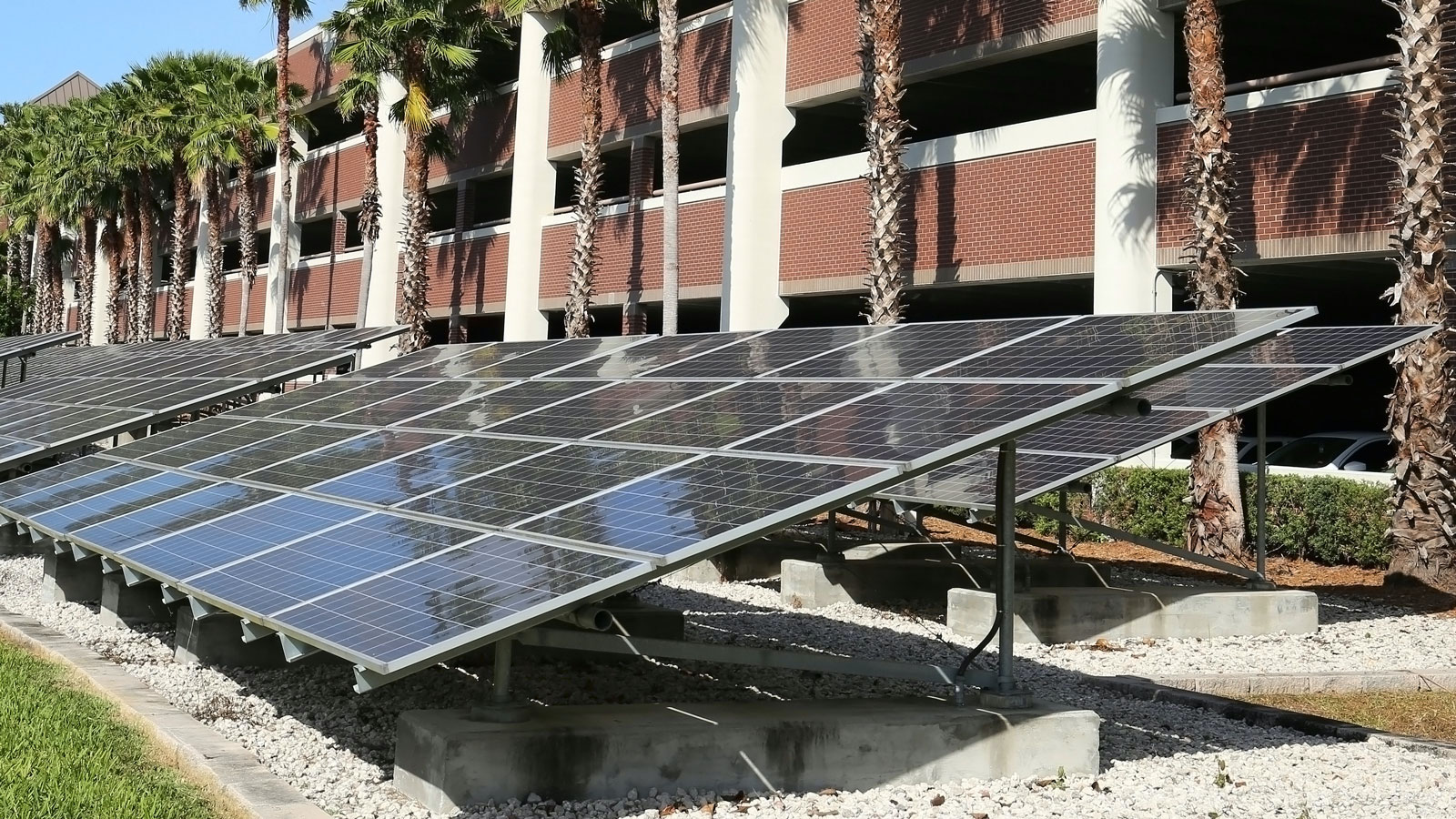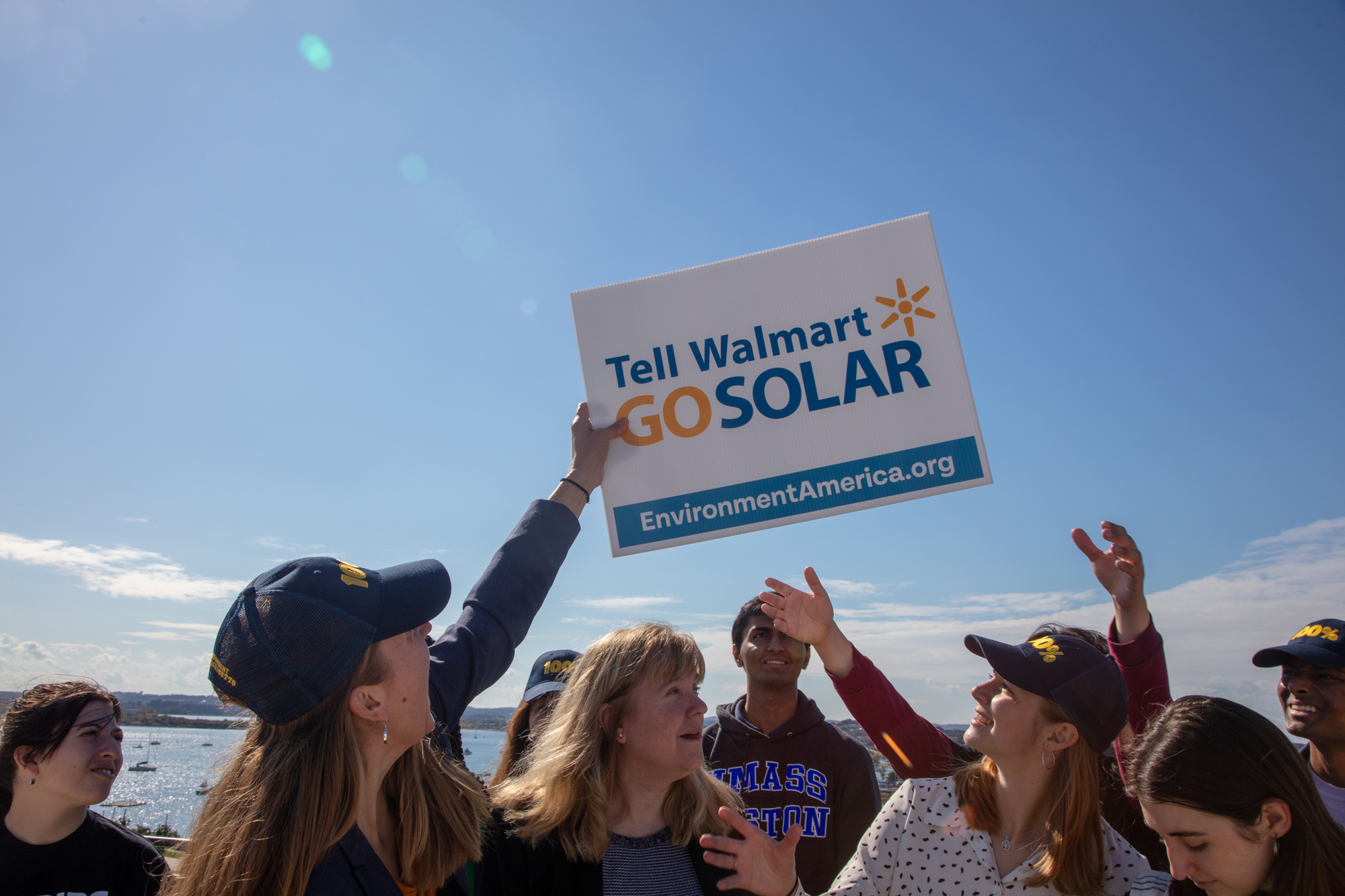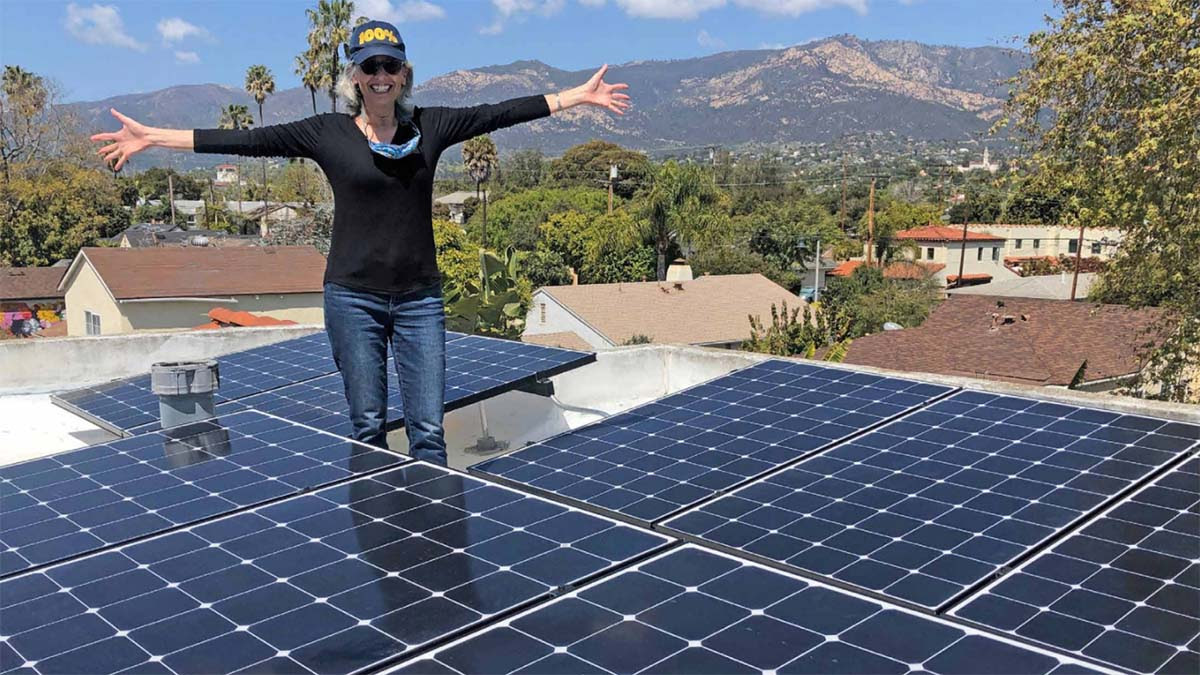
Saving America’s Rooftop Solar
Rooftop solar is one of our best clean energy technologies. In the face of utility opposition, Americans across the country are standing up for putting solar on their homes — and winning.

Rooftop solar is one of our best clean energy technologies. In the face of utility opposition, across the country, Americans are standing up for solar. So, what makes solar so powerful, why do the utilities fight it and how are those fights playing out?
A ‘uniquely powerful and beneficial’ energy technology
Of the many clean energy technologies out there today, rooftop solar is uniquely powerful and beneficial because it:
-
Reduces conflicts between land preservation and renewable energy production;
-
Reduces the need for expensive long-distance transmission infrastructure;
-
Helps to build a more resilient electricity system against wildfires and other climate-related disasters.
Rooftop solar at risk
Unfortunately, despite all its benefits, utility companies and other special interests across the country are undermining rooftop solar.
Many utilities fear that the falling prices and rising availability of clean solar power will threaten their business model, which ties profits to the amount of capital investment made in the grid, and sometimes to the amount of electricity sold.
Our report, Blocking Rooftop Solar, documents how utilities use their money and clout to push policymakers to undercut solar power and make it harder for homeowners and small businesses to produce their own clean energy.
One particular policy that the utilities target is “net metering.” As of June, 2020, 40 states, Washington, D.C., and some U.S. territories have enacted net-metering policies that ensure solar panel owners receive fair compensation for the clean energy they supply to the electric grid. In many of those states, utilities have pushed to change net-metering policies and reduce compensation for rooftop solar.
Solar is America’s most popular energy source.
What the utilities failed to factor into their effort to gut the policies that support rooftop solar is that Americans from across the political spectrum love solar and the policies that support it. Year after year, polling consistently shows solar’s broad appeal. For example:
-
In 2021, according to a Pew Research poll, 84% of Americans – a broad majority – support expanding solar panel farms. Solar topped the charts at greater than two-third support across all ages and political groups. No other energy source had such a high level of support.
-
A national survey conducted in 2017 by researchers at the University of Michigan and Muhlenberg College found that 76% of Americans support net-energy metering. Even among respondents who identified as “very conservative,” 62% said they support net metering.
-
A 2022 poll conducted by Mason-Dixon in Florida found bipartisan support for net metering. An overwhelming 94% of Democrats support net metering while 76% of Republicans also support the measure.
Organizing and advocacy to save solar is winning
Thanks to this public support, pro-solar policies are proving resilient in the face of utility company attacks. Recently, in California, Florida and Arkansas, decision-makers upheld policies that fairly compensate solar owners for the excess power they sell back to the grid for their neighbors to use.
Saving California solar
Thanks in part to the voices of tens of thousands of California residents, regulators put a plan on hold that would have put solar out of reach for most people in the state.
After decision-makers heard opposition from 120,000 Californians and 70 organizations, on February 3, 2022 the California Public Utilities Commission (CPUC) announced it would delay its controversial rooftop solar plan “until further notice.” Environment California played a leading role drumming up opposition to the anti-solar proposal, which former California Gov. Arnold Schwarzenegger called in The New York Times: “another case of the big guys — the investor-owned utilities — fighting for themselves and hurting people who have invested or want to invest in solar panels.” Environment California had previously worked with Gov. Schwarzenegger to successfully implement the Million Solar Roofs Initiative.
Environment California now looks forward to the CPUC issuing an amended decision that supports rooftop solar expansion.

Environment America’s president, Wendy Wendlandt talks about why saving rooftop solar will help California reach its climate goals at a rally in Los Angeles in January 2022. (Photo credit: CALSSA)
Saving solar in the Sunshine State
Exercising his first veto of the 2022 legislative session, Florida Gov. Ron DeSantis vetoed HB 741, a bill that would have gutted net metering in Florida.
Environment Florida and affiliated organizations have campaigned for years to defend the policies that support solar growth in the Sunshine State. Recently, Environment America worked with the Florida Solar Coalition and Alianza to generate more than 1,000 calls from Floridians to Gov. DeSantis to urge him to veto the bill. More than 250 Environment Florida members also emailed Gov. DeSantis with the same message. According to the Governor DeSantis’s Citizen’s Services Office, DeSantis received 16,809 emails, letters and phone calls opposing the net metering bill and only 13 in support.
Saving solar in Arkansas
After a multi-year effort to save solar in Arkansas, recently, the Arkansas Court of Appeals ruled that solar owners in that state will continue to receive the full retail rate for energy they sell back to the electric grid.
How to go solar
If you’ve ever thought about going solar but don’t know where to get started? Here’s what you need to know about your solar options, whether you rent or own: https://environmentamerica.org/feature/ame/how-go-solar
I anticipate that the utility companies won’t let up their opposition to rooftop solar anytime soon. But I also know that people care deeply about putting solar on their homes and will continue to rise to the challenge and defend this uniquely powerful and beneficial clean energy technology.

Support rooftop solar
Every rooftop built without a solar panel is a missed opportunity to tap into a clean, renewable energy source that doesn't pollute our communities or threaten the future of our planet. Will you stand with us in support of rooftop solar across the nation?
Topics
Authors
Johanna Neumann
Senior Director, Campaign for 100% Renewable Energy, Environment America
Johanna directs strategy and staff for Environment America's energy campaigns at the local, state and national level. In her prior positions, she led the campaign to ban smoking in all Maryland workplaces, helped stop the construction of a new nuclear reactor on the shores of the Chesapeake Bay and helped build the support necessary to pass the EmPOWER Maryland Act, which set a goal of reducing the state’s per capita electricity use by 15 percent. She also currently serves on the board of Community Action Works. Johanna lives in Amherst, Massachusetts, with her family, where she enjoys growing dahlias, biking and the occasional game of goaltimate.
Find Out More

Which 10 American retailers can lead the way on rooftop solar?

More rooftop solar, less red tape

Unlocking America’s rooftop solar potential


